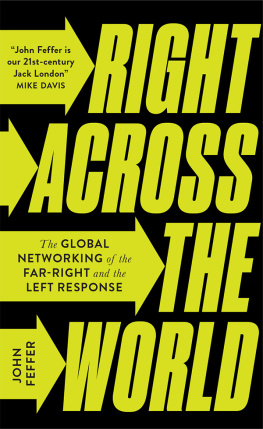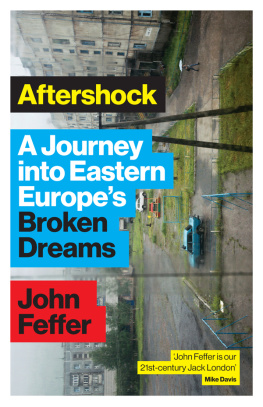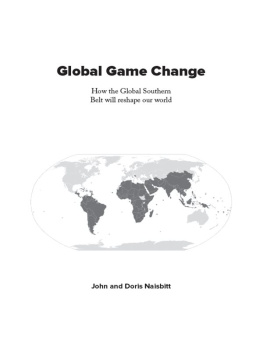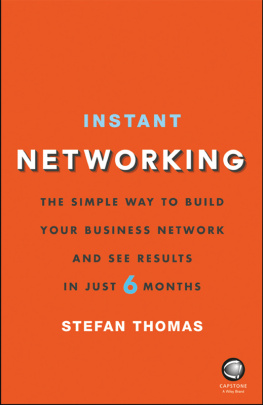Right Across the World
John Feffer is our 21st-century Jack London.
Mike Davis, author of Planet of Slums
John Feffer brings [...] a rich store of experiences and a wise perspective.
Adam Hochschild, author of King Leopolds Ghost
An important book [...] the Trump world is part of a transnational story that wont go away. Feffer knows this international ground well and covers it skillfully.
Lawrence Rosenthal, Chair and Lead Researcher of the Berkeley Center for Right-Wing Studies
Clearly lays out the challenges societies are facing from an increasingly mobilized transnational far right movement. Unique, because he also provides solutions.
Heidi Beirich, co-founder of the Global Project Against Hate and Extremism
An urgent warning to progressives that while they may consider themselves to be the true internationalists, the nationalist right has stolen a march on them and now threatens to overrun their values of global justice and solidarity.
Walden Bello, International Adjunct Professor of Sociology at the State University of New York at Binghamton
Right Across the World
The Global Networking of the Far Right and the Left Response
John Feffer
First published 2021 by Pluto Press
New Wing, Somerset House, Strand, London WC2R 1LA
www.plutobooks.com
Copyright John Feffer 2021
The right of John Feffer to be identified as the author of this work has been asserted in accordance with the Copyright, Designs and Patents Act 1988.
British Library Cataloguing in Publication Data
A catalogue record for this book is available from the British Library
ISBN 978 0 7453 4188 0 Hardback
ISBN 978 0 7453 4189 7 Paperback
ISBN 978 1 78680 855 4 PDF
ISBN 978 1 78680 856 1 EPUB
This book is printed on paper suitable for recycling and made from fully managed and sustained forest sources. Logging, pulping and manufacturing processes are expected to conform to the environmental standards of the country of origin.
Typeset by Stanford DTP Services, Northampton, England
Simultaneously printed in the United Kingdom and United States of America
Contents
Acknowledgments
This book draws on interviews with more than 80 thinkers and activists around the world. Quotations without citations are from those interviews, conducted between June and October 2019.
An earlier version of some of the material in this book appeared in the Institute for Policy Studies report, The Battle for a New World, produced with the Transnational Institute and Focus on the Global South and supported by the Rosa Luxemburg Foundation. Other portions appeared originally in articles for The Nation, TomDispatch, and Foreign Policy In Focus.
The author would like to thank Kristin Henderson for research assistance, Maresi Starzmann for feedback, and Peter Certo for copy-editing the original IPS report. Andreas Gunther and John Cavanagh cant be thanked enough for their commitment to this project. And Ken Barlow provided invaluable help in turning this manuscript into a publishable book.
Introduction
THE RISE AND FALL OF STEVE BANNON
A Nationalist International should be a contradiction in terms, but that didnt stop Steve Bannon from trying to create one.
Steven Bannon was the head of Breitbart News and a darling of the alt-right when he took over as Donald Trumps campaign CEO in August 2016. He was captaining what virtually all U.S. political observers believed to be a sinking ship. And yet, in the space of a few months, he managed to right the foundering vessel on the way to achieving one of the most remarkable electoral surprises in American history. The victory contributed to his confidence that he could accomplish virtually anything he envisioned.
Bannon subsequently joined the Trump administration as a spin doctor, strategic advisor, and conduit to what he liked to call the deplorables, an ironic reference to Hilary Clintons infamous disparagement of a certain subset of Trump supporters.
In between these efforts on behalf of his chosen Prince, the Machiavellian Bannon set off in early 2018 on an extended world tour. His mission was even more ambitious than getting Trump elected. Bannon hoped to build a loose network of right-wing populists with a strong transatlantic link and branches in ideologically sympathetic outposts elsewhere in the world. In grand fashion, he wanted to replicate on the global stage his success in building bridges within the U.S. right.
Bannon believed very strongly in his own timing. With the Breitbart media empire, which injected far-right ideas on immigration, politics, As with Trumps election, the successful Brexit referendum in 2016 turned out to be an upset victory for the far right and a vindication of Bannons foresight.
In 2018, which Bannon thought was the perfect moment to create a Nationalist International, the far right hadnt just been winning in the United States and the United Kingdom. In the 2010s, far-right politicians made unprecedented leaps into power throughout Europe. In Eastern Europe, right-wing populists took over in Hungary in 2010, Poland in 2015, and the Czech Republic in 2017. Ideologically similar leaders entered coalition governments in Austria in 2017 and Italy in 2018. Even in notoriously tolerant Scandinavia, the far right made significant headway. The True Finns acquired enough votes after the 2015 election to enter a coalition government with center-right parties, while the Sweden Democrats, a party with neo-Nazi roots, came close on several occasions to becoming that countrys most popular party. In Germany, the extremist Alternative fr Deutschland (AfD) became the third-largest party in 2017 even as the government was banning neo-Nazi organizations.
In celebration of its success that year, the AfD sponsored a convention in Koblenz that brought together a group of these like-minded European leaders. Movement headliners Marine Le Pen from France, Geert Wilders from the Netherlands, and Matteo Salvini from Italy all participated. It took place shortly after Donald Trumps inauguration, which prompted Wilders to comment, Yesterday a free America, today Koblenz, tomorrow a new Europe. Two years later, in the European Parliament elections in May 2019, far-right parties were the top vote-getters in the UK, France, Italy, and Hungary. It seemed as though Wilderss prediction was coming true.
Although theyd existed in Europe for several generations, far-right parties had always hovered on the fringes of politics: boycotted by mainstream politicians, mocked in the mainstream media, and ignored in the broader culture. In the late twentieth century, huge demonstrations thronged the streets of France, the Netherlands, Austria, and other European countries to block the far rights entrance into mainstream politics. By the 2010s, it was the far right bringing people out onto the streets as they evolved into serious political players and, in some cases, governing parties. Bannon intended to build on this dramatic reversal of fortune by providing the European far righta motley crew of parties, movements, and marginal figureswith an organizing upgrade.
Furthermore, the success of the far right was not restricted to the United States and Europe. In the Philippines, Asias Donald Trump Rodrigo Duterte won the presidential election in May 2016, prefiguring Trump in many ways with his profane and sexist rhetoric, assaults on the rule of law, crackdowns on dissent, and direct criticisms of Barack Obama. In December 2016, Duterte signaled a shift in policy toward the United States by congratulating Trump on his electoral victory. We both like to swear, Duterte said. One little thing, we curse right away; were the same. The president-elect returned the favor by praising the Philippine leaders drug policy, which had attracted widespread criticism for involving thousands of extrajudicial killings.











